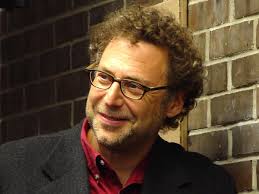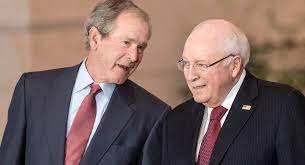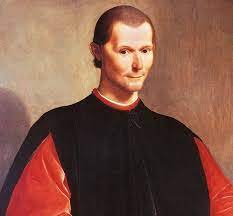I recently heard about a guy who made a pre-season $150 bet that the New England Patriots would go undefeated right through the Superbowl. I believe the odds were 40,000 to 1. The Pats won every regular season and playoff game; if they win the Superbowl, the man takes away $6,000,000. Then, the man received a call from the president of the casino. The offer: $2,000,000 to cancel the bet. The Pats lost the Superbowl. The man lost $2,000,150. According to Leonard Mlodinow, humans are seemingly wired to walk away empty-handed, since we tend to base our decisions on what appear to be patterns in a series of past events. “The greatest challenge in understanding the role of randomness in life,” he says, “is that although the basic principles of randomness arise from everyday logic, many of the consequences that follow from those principles prove counterintuitive.”
 For instance, I leave several voice messages for a woman, but she doesn’t return my calls. There are at least two ways to formulate the odds-making question: (1) What are the odds that if she won’t return my calls, she is through with me?, or (2) what are the odds that if she is through with me, she won’t return my calls? But she has always returned my calls, so she must have lost interest in me! Distress affects my ability to consider the random elements, the plausible factors (what I know about her general behavior and lifestyle) that may account for her silence. I calculate the odds, but have asked the wrong question.
For instance, I leave several voice messages for a woman, but she doesn’t return my calls. There are at least two ways to formulate the odds-making question: (1) What are the odds that if she won’t return my calls, she is through with me?, or (2) what are the odds that if she is through with me, she won’t return my calls? But she has always returned my calls, so she must have lost interest in me! Distress affects my ability to consider the random elements, the plausible factors (what I know about her general behavior and lifestyle) that may account for her silence. I calculate the odds, but have asked the wrong question.
The Drunkard’s Walk is a bracing trek through historical attempts at coldly calculating the odds of an eventuality. But the story begins with Roger Maris’ 61 home runs in 1961, breaking Babe Ruth’s record of 60. Maris never again hit even as many as 40 homers in a season, and people (especially Mantle fans) derided his accomplishment as a fluke. Mlodinow asks, “What are the odds that some player at some time would have matched or broken Ruth’s record by chance alone?… Is it reasonable to believe that Maris just happened to be the recipient of the lucky aberrant season?” His analysis suggests that “extraordinary events can happen without extraordinary causes,” a conclusion that is virtually rejected, for instance, in American business where auspicious results no matter how lucky always reflect the vision of the CEO. “The result of any particular at bat (that is, an opportunity for success) depends primarily on the player’s ability, of course,” says Mlodinow. “But it also depends on the interplay of many other factors … If not for all the unpredictable factors, a player would either hit a home run on every at bat or fail to do so. Instead, for each at bat all you can say is that he has a certain probability of hitting a home run and a certain probability of failing to hit one.” In the course of a season, the random factors “usually average out and result in some typical home run production … But sometimes the random factors don’t average out. How often does that happen, and how large is the aberration?” Although not reluctant to credit Maris’ talent, Mlodinow is more concerned about showing that particular spectacular results occur with some probability. Why is he so intent on taking us through the evolutionary history of probability theories? The reason: We perceive randomness as disorder and therefore fail to exploit its value.
 The book is rich in examples. Mlodinow notes that Theodor Geisel’s (Dr. Seuss) first book, And to Think That I Saw It on Mulberry Street, was rejected by twenty-seven publishers. John Grisham’s first novel, by twenty-six. J.K. Rowling’s first Harry Potter manuscript by nine. There are always a sufficient number of people inclined to view repeated failure as the sign of an inveterate loser. “That’s why successful people in every field are almost universally members of a certain set,” Mlodinow claims, “the set of people who didn’t give up.” But life-coaching isn’t Mlodinow’s mission here. He’s campaigning against “our errors of intuition. We can learn to view both explanations and prophecies with skepticism. We can focus on the ability to react to events rather than relying on the ability to predict them, on qualities like flexibility, confidence, courage, and perseverance. And we can place more importance on our direct impressions of people than on their well-trumped past accomplishments. In these ways we can resist forming judgments in our automatic deterministic framework.”
The book is rich in examples. Mlodinow notes that Theodor Geisel’s (Dr. Seuss) first book, And to Think That I Saw It on Mulberry Street, was rejected by twenty-seven publishers. John Grisham’s first novel, by twenty-six. J.K. Rowling’s first Harry Potter manuscript by nine. There are always a sufficient number of people inclined to view repeated failure as the sign of an inveterate loser. “That’s why successful people in every field are almost universally members of a certain set,” Mlodinow claims, “the set of people who didn’t give up.” But life-coaching isn’t Mlodinow’s mission here. He’s campaigning against “our errors of intuition. We can learn to view both explanations and prophecies with skepticism. We can focus on the ability to react to events rather than relying on the ability to predict them, on qualities like flexibility, confidence, courage, and perseverance. And we can place more importance on our direct impressions of people than on their well-trumped past accomplishments. In these ways we can resist forming judgments in our automatic deterministic framework.”
 My academic friends almost universally regard Cheney-Bush’s Iraq fiasco as the premeditated machinations of evil men, but my business acquaintances recognize the more common behavior of hyper-confident CEOs who believe, in the proven ways of commercial development, that great endeavors may involve huge amounts of waste and expense but the “upside” may be even greater. The Cheney-Bush syndrome is an unexceptional “error.” So, with a set of details pointing to a ripe opportunity (“Saddam has WMD’s, meaning we can whack him”), our first MBA-president behaved like so many other executives. The more detail attributed to a contingency, the faster the blood pumps through the heart of the CEO. The more detail, the more confidence. My two business partners and I are currently pitching our plan to high-worth investors who want to know “the history of our category” and how we intend to replicate the successes of other Internet social media companies. We biz-people are of two brains: we’re entertained by stories of how young companies get lucky (Mlodinow gives some wonderful examples, including how Bill Gates stumbled into MS-DOS), but when we consider investing our money, our confidence and calculations rely almost solely on predictive strategies based on other companies’ success models. But what are the attributes in a start-up management team that aid in recognizing lucky breaks and counterintuitive opportunity? Conventional wisdom suggests that the success of a product is determined by predicting the buyer’s preference, and that the quality of the product calls out that pre-existing preference. Mlodinow’s discussion of research done on music downloading and his perspective on the career of the actor Bruce Willis challenge this view.
My academic friends almost universally regard Cheney-Bush’s Iraq fiasco as the premeditated machinations of evil men, but my business acquaintances recognize the more common behavior of hyper-confident CEOs who believe, in the proven ways of commercial development, that great endeavors may involve huge amounts of waste and expense but the “upside” may be even greater. The Cheney-Bush syndrome is an unexceptional “error.” So, with a set of details pointing to a ripe opportunity (“Saddam has WMD’s, meaning we can whack him”), our first MBA-president behaved like so many other executives. The more detail attributed to a contingency, the faster the blood pumps through the heart of the CEO. The more detail, the more confidence. My two business partners and I are currently pitching our plan to high-worth investors who want to know “the history of our category” and how we intend to replicate the successes of other Internet social media companies. We biz-people are of two brains: we’re entertained by stories of how young companies get lucky (Mlodinow gives some wonderful examples, including how Bill Gates stumbled into MS-DOS), but when we consider investing our money, our confidence and calculations rely almost solely on predictive strategies based on other companies’ success models. But what are the attributes in a start-up management team that aid in recognizing lucky breaks and counterintuitive opportunity? Conventional wisdom suggests that the success of a product is determined by predicting the buyer’s preference, and that the quality of the product calls out that pre-existing preference. Mlodinow’s discussion of research done on music downloading and his perspective on the career of the actor Bruce Willis challenge this view.
 The Drunkard’s Walk is probably too dense a read for most businesspeople, so to brush up on attributes of executive leadership, they may read a paragraph or two from Machiavelli (if called out in a magazine, PowerPoint slide, or website). Machiavelli was impressed by the autonomously exercised power of Borgia: be bold, strong, predatory – even while he believed that Borgia placed too much irrational emphasis on good fortune (Borgia figured that by installing his own guy as pope, all major problems would be solved). Machiavelli would also be impressed, I think, by Mlodinow’s tracking of the struggle to balance fact, intuition, calculation, and forecasting. The history begins with the Romans (more interested than the Greeks in making non-oracle based predictions – Cicero: “probability is the very guide of life”). Then, Gerolamo Cardano wrote The Book on Games of Chance in the 1530s. Mlodinow uses this text to explain the surprising odds-making dimensions behind the TV show “Let’s Make A Deal.” We then move to Galileo and Pascal, the famous Bernoulli family, and the fundamental differences between probability and statistics. I must emphasize that Mlodinow entertains us as well. He offers a spirited examination of the alleged meaning of numerical quality ratings for wine (you’ll never view them the same way again). Each chapter considers a probability theory (its maker’s biography and its intended problem-solving use) and applies it to anecdotal situations and historical events. The book offers a wonderfully stimulating experience, underscored by the urgency Mlodinow expresses in the need for this alternative education. In several respects, it exceeds Nicholas Rescher’s Luck: The Brilliant Randomness of Everyday Life (Farrar, 1995) in its structure, clarity, and spice.
The Drunkard’s Walk is probably too dense a read for most businesspeople, so to brush up on attributes of executive leadership, they may read a paragraph or two from Machiavelli (if called out in a magazine, PowerPoint slide, or website). Machiavelli was impressed by the autonomously exercised power of Borgia: be bold, strong, predatory – even while he believed that Borgia placed too much irrational emphasis on good fortune (Borgia figured that by installing his own guy as pope, all major problems would be solved). Machiavelli would also be impressed, I think, by Mlodinow’s tracking of the struggle to balance fact, intuition, calculation, and forecasting. The history begins with the Romans (more interested than the Greeks in making non-oracle based predictions – Cicero: “probability is the very guide of life”). Then, Gerolamo Cardano wrote The Book on Games of Chance in the 1530s. Mlodinow uses this text to explain the surprising odds-making dimensions behind the TV show “Let’s Make A Deal.” We then move to Galileo and Pascal, the famous Bernoulli family, and the fundamental differences between probability and statistics. I must emphasize that Mlodinow entertains us as well. He offers a spirited examination of the alleged meaning of numerical quality ratings for wine (you’ll never view them the same way again). Each chapter considers a probability theory (its maker’s biography and its intended problem-solving use) and applies it to anecdotal situations and historical events. The book offers a wonderfully stimulating experience, underscored by the urgency Mlodinow expresses in the need for this alternative education. In several respects, it exceeds Nicholas Rescher’s Luck: The Brilliant Randomness of Everyday Life (Farrar, 1995) in its structure, clarity, and spice.
This is also a book about psychology. “Why is the human need to be in control relevant to a discussion of random patterns?” he asks. “Because if events are random, we are not in control, and if we are in control, they are not random. There is therefore a fundamental clash between our need to feel we are in control and our ability to recognize randomness.” The need interferes with our ability to reason and perceive accurately. Ambiguous information (“Saddam has WMDs, maybe”) is slanted to support preconceived notions.
“Random forces and our reactions to them account for much of what constitutes our particular path in life,” Mlodinow writes. Molecules careen through space and randomly bump against each other, like drunks (thus the book’s title). Since chance and luck play such a great role, it makes sense that the key to success is to get as many at bats as possible. There are both poets and companies whose several minor strengths lead to their domination of a “category” over others who offer a single major distinction. There are poets and presidents who land jobs because influential people intervene in their careers. The Drunkard’s Walk is a deeply humanistic book – and both poets and presidents can afford to reconsider their positions by way of Mlodinow’s look at the misperceptions of famous random sequences.
[Published by Pantheon on May 13, 2008, 272 pps., $24.95 hardcover]